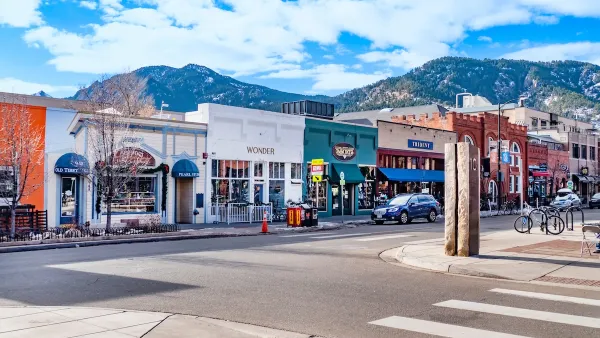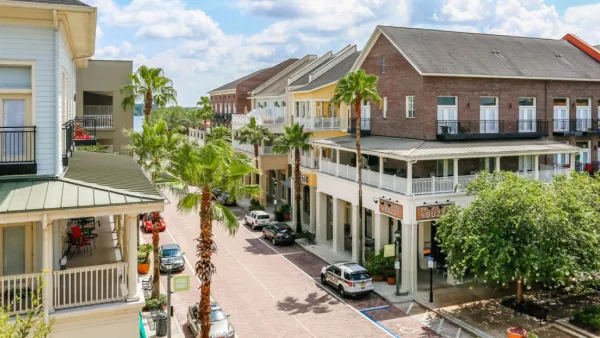The cautionary tale of “a very suburban kerfuffle” in Blaine, Minnesota: residents of a “large, multi-builder housing development” who once opposed a multi-family residential development in the neighborhood now lament a lack of retail.
Julie Kosbab makes the “you reap what you sow” argument regarding density (or lack thereof) by telling the story of “The Lakes” development in Blaine, Minnesota.
“Within a large, multi-builder housing development, there were several commercial plots. Despite the housing boom in the area, no one would step up to develop them as commercial, because no one wanted to occupy a potentially developed property.” The reticence of developers to build commercial uses in The Lakes is explained by a lack of density, for which residents have no one to blame but themselves, according to Kosbab.
“[One] of the biggest protests in Blaine City Council history was when a builder proposed a 157-unit luxury apartment complex on a nearby plot.” And you can probably guess what happened next: “Due to neighborhood protest, the plan for this added density was shot down.”
“Now, many of the same residents who opposed the apartments are shrieking that they were 'misled' because they were prooooomised retail! And now those mean builders want to build more homes instead!”
The lesson, according to Kosbab: “Even small retail with high-end appeal (childcare? yoga? coffee?) requires a degree of density to support the cost of the property and reasonable financials.”
FULL STORY: Accept the Consequences of Opposing Density

Planetizen Federal Action Tracker
A weekly monitor of how Trump’s orders and actions are impacting planners and planning in America.

Maui's Vacation Rental Debate Turns Ugly
Verbal attacks, misinformation campaigns and fistfights plague a high-stakes debate to convert thousands of vacation rentals into long-term housing.

San Francisco Suspends Traffic Calming Amidst Record Deaths
Citing “a challenging fiscal landscape,” the city will cease the program on the heels of 42 traffic deaths, including 24 pedestrians.

Defunct Pittsburgh Power Plant to Become Residential Tower
A decommissioned steam heat plant will be redeveloped into almost 100 affordable housing units.

Trump Prompts Restructuring of Transportation Research Board in “Unprecedented Overreach”
The TRB has eliminated more than half of its committees including those focused on climate, equity, and cities.

Amtrak Rolls Out New Orleans to Alabama “Mardi Gras” Train
The new service will operate morning and evening departures between Mobile and New Orleans.
Urban Design for Planners 1: Software Tools
This six-course series explores essential urban design concepts using open source software and equips planners with the tools they need to participate fully in the urban design process.
Planning for Universal Design
Learn the tools for implementing Universal Design in planning regulations.
Heyer Gruel & Associates PA
JM Goldson LLC
Custer County Colorado
City of Camden Redevelopment Agency
City of Astoria
Transportation Research & Education Center (TREC) at Portland State University
Jefferson Parish Government
Camden Redevelopment Agency
City of Claremont





























